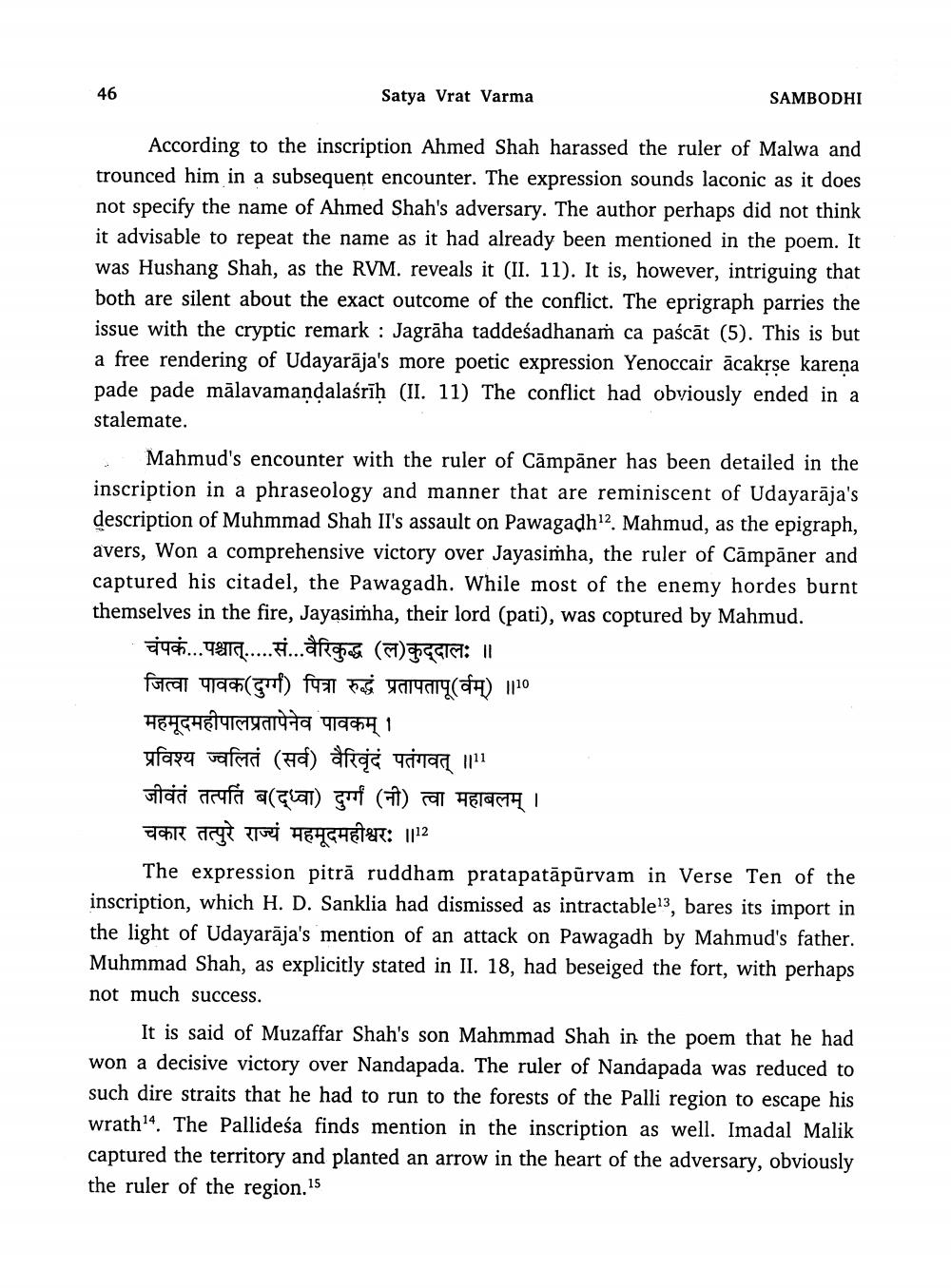________________
46
Satya Vrat Varma
SAMBODHI
According to the inscription Ahmed Shah harassed the ruler of Malwa and trounced him in a subsequent encounter. The expression sounds laconic as it does not specify the name of Ahmed Shah's adversary. The author perhaps did not think it advisable to repeat the name as it had already been mentioned in the poem. It was Hushang Shah, as the RVM. reveals it (II. 11). It is, however, intriguing that both are silent about the exact outcome of the conflict. The eprigraph parries the issue with the cryptic remark : Jagrāha taddeśadhanam ca paścāt (5). This is but a free rendering of Udayarāja's more poetic expression Yenoccair ācakrse karena pade pade mālavamandalaśrīḥ (II. 11) The conflict had obviously ended in a stalemate.
Mahmud's encounter with the ruler of Campāner has been detailed in the inscription in a phraseology and manner that are reminiscent of Udayarāja's description of Muhmmad Shah II's assault on Pawagadh12. Mahmud, as the epigraph, avers, Won a comprehensive victory over Jayasimha, the ruler of Campāner and captured his citadel, the Pawagadh. While most of the enemy hordes burnt themselves in the fire, Jayasimha, their lord (pati), was coptured by Mahmud.
140...797...... afghansen (1) GIST: | forralt 40(gof) fall presenta aleancan) ||10 महमूदमहीपालप्रतापेनेव पावकम् । ufara velferdi (Hd) afica tivac 1111 oiladi Tufa acquat) grof (*) all E46741 चकार तत्पुरे राज्यं महमूदमहीश्वरः ।।12
The expression pitrā ruddham pratapatāpūrvam in Verse Ten of the inscription, which H. D. Sanklia had dismissed as intractable3, bares its import in the light of Udayarāja's mention of an attack on Pawagadh by Mahmud's father. Muhmmad Shah, as explicitly stated in II. 18, had beseiged the fort, with perhaps not much success.
It is said of Muzaffar Shah's son Mahmmad Shah in the poem that he had won a decisive victory over Nandapada. The ruler of Nandapada was reduced to such dire straits that he had to run to the forests of the Palli region to escape his wrath4. The Pallideśa finds mention in the inscription as well. Imadal Malik captured the territory and planted an arrow in the heart of the adversary, obviously the ruler of the region. 15




